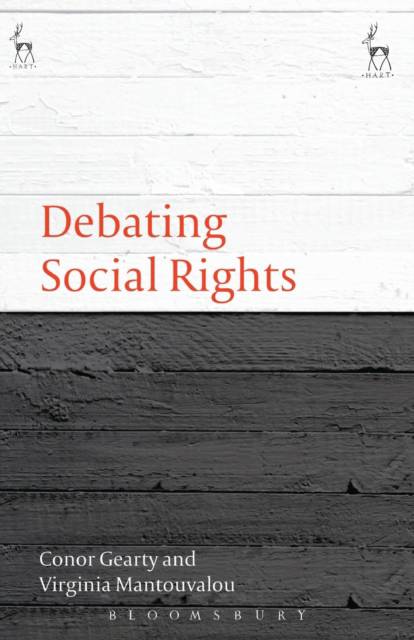
- Afhalen na 1 uur in een winkel met voorraad
- Gratis thuislevering in België vanaf € 30
- Ruim aanbod met 7 miljoen producten
- Afhalen na 1 uur in een winkel met voorraad
- Gratis thuislevering in België vanaf € 30
- Ruim aanbod met 7 miljoen producten
Zoeken
Omschrijving
'Debating Law' is a new series that gives scholarly experts the opportunity to offer contrasting perspectives on significant topics of contemporary, general interest.
In this second volume of the series, Conor Gearty argues that for rights to work effectively in the wider promotion of social justice, they need to be kept as far away as possible from the courts. He acknowledges the value of rights language in legal and political debate and accepts that human rights are not solely civil and political, with social rights language clearly having a progressive, emancipatory dimension. However he says that lawyers - even well-intentioned lawyers - damage the achievability of the kind of radical transformation in the priorities of states that a genuine commitment to social rights surely necessitates. Virginia Mantouvalou argues that social rights, defined as entitlements to the satisfaction of basic needs, are as essential for the well-being of the individual and the community as long-established civil and political rights. The real challenge, she suggests, is how best to give effect to social rights. Drawing on examples from around the world, she argues for their 'legalisation', and examines the role of courts and the role of legislatures in this process, both at a national and a international level.
In this second volume of the series, Conor Gearty argues that for rights to work effectively in the wider promotion of social justice, they need to be kept as far away as possible from the courts. He acknowledges the value of rights language in legal and political debate and accepts that human rights are not solely civil and political, with social rights language clearly having a progressive, emancipatory dimension. However he says that lawyers - even well-intentioned lawyers - damage the achievability of the kind of radical transformation in the priorities of states that a genuine commitment to social rights surely necessitates. Virginia Mantouvalou argues that social rights, defined as entitlements to the satisfaction of basic needs, are as essential for the well-being of the individual and the community as long-established civil and political rights. The real challenge, she suggests, is how best to give effect to social rights. Drawing on examples from around the world, she argues for their 'legalisation', and examines the role of courts and the role of legislatures in this process, both at a national and a international level.
Specificaties
Betrokkenen
- Auteur(s):
- Uitgeverij:
Inhoud
- Aantal bladzijden:
- 201
- Taal:
- Engels
- Reeks:
- Reeksnummer:
- nr. 2
Eigenschappen
- Productcode (EAN):
- 9781849460231
- Verschijningsdatum:
- 1/01/2011
- Uitvoering:
- Paperback
- Formaat:
- Trade paperback (VS)
- Afmetingen:
- 157 mm x 234 mm
- Gewicht:
- 589 g

Alleen bij Standaard Boekhandel
+ 72 punten op je klantenkaart van Standaard Boekhandel
Beoordelingen
We publiceren alleen reviews die voldoen aan de voorwaarden voor reviews. Bekijk onze voorwaarden voor reviews.








